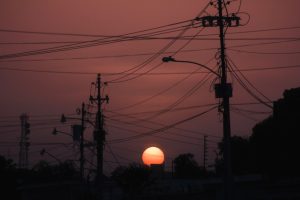Although the country has faced significant difficulties, opportunities have also emerged for those with business vision and flexibility. This article will analyze the economic and political projections that will have a direct impact on businesses in the coming year.
In recent years, Venezuela’s economy has seen a gradual recovery after the deep crisis it suffered during the previous decade. According to the projections of the International Monetary Fund (IMF), economic growth at the end of the year is estimated at 3.6%, below the projections made at the beginning of this year but equally significant for the slow but constant recovery.
Several business sectors could benefit from this kind of stabilization, which some analysts call “moat stabilization.” However, there is still a long way to go to reach the levels of well-being that existed before the crisis. There is a problem like inflation, which requires astute financial management to reduce its impact.
A series of factors explain the growth of the Venezuelan economy in 2023, among which stand out:
- The recovery of oil production, which has increased by thirty percent compared to 2022.
- Oil prices have increased, reaching levels higher than before the pandemic due to recent wars in Eastern Europe and the Middle East.
- The reduction of economic sanctions imposed by the United States has given way to new markets and financing.
However, there are some risks and concerns that could affect economic growth in 2024. The main one is related to the political landscape next year.
From a political perspective, stability is a key factor for the country’s development. The scope of the Barbados agreements, which facilitated a dialogue between representatives of the government and the opposition, represents a significant step towards reconciliation and political stability. The agreements establish a series of electoral guarantees, such as the authorization of all presidential candidates, international supervision of the elections and the release of political prisoners.
The possibility of consensus and respect for what is established could generate an environment conducive to reforms that favor investment and business development, creating a more favorable climate for economic growth. However, it is still too early to know whether the agreements will be successful.
In this sense, the country is preparing for the 2024 presidential elections. President Nicolás Maduro has expressed his intention to run for a third term, which has generated strong opposition. Although the presidential elections generate uncertainty, the commitment of both sides to mutual understanding suggests the possibility of joint measures to stimulate the economy and improve the business climate.
This point is a fundamental aspect for the reconstruction of the country. In recent years, the thesis has been promoted that political freedom in the country is divorced from economic progress, polarizing both issues. So for some sectors it is inconceivable that there will be an economic recovery in the country without leaving the government.
Indeed, it is necessary to change the prevailing political model and for it to be accompanied by structural reforms. To the extent that there is freedom, there is respect for private initiative, there are more committed, more responsible entrepreneurs, there are better salaries and of course there is more progress for everyone.
Now, this cannot stop the idea that the country can move towards a new economic model. To the generation of proposals that encourage national production and the strengthening of the country’s entrepreneurial capacity, to the recovery of salaries and consumer power.
In this sense, despite the challenges, there are also opportunities for companies in Venezuela. The country has a potential market of more than 20 million inhabitants, with a demographic growth of around 2% annually. In addition, the country has a great source of natural resources (oil, mineral and agricultural resources) that, through an intensive process of production specialization, can help incorporate our products into the global value chain. At the same time, it has a significant installed capacity and highly trained human talent.
Likewise, the push toward digitalization, for example, offers fertile ground for technology companies. Likewise, diversification of products and services can be key to adaptability in a changing environment.
The key is that companies that want to take advantage of the opportunities that Venezuela offers must be aware of the risks and challenges that exist, in which it is necessary to carry out careful research and have a solid business plan.
2024 is presented as a year of unique challenges and opportunities for companies in Venezuela. The Barbados Accords and political dialogue offer palpable hope for stability and reforms that could redefine the business landscape. In this scenario, adaptability and strategic vision will be key to capitalizing on emerging opportunities and overcoming the challenges inherent to the Venezuelan reality.
In this context, business opportunities are intertwined with politics. Openness to dialogue can unlock avenues for foreign investment, providing new opportunities for sectors such as technology and energy. Political stabilization could pave the way for pro-business policies, boosting confidence and investment.






